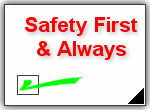 In browsing articles on current methadone treatment, I came across a brief one in the United Kingdom’s Daily Record specifically from the Scottish news section. The article contained a number of derogatory quotes (in regard to methadone) from Scotland’s Maxie Richards. Ms. Richards runs a foundation for addicted people in recovery.
In browsing articles on current methadone treatment, I came across a brief one in the United Kingdom’s Daily Record specifically from the Scottish news section. The article contained a number of derogatory quotes (in regard to methadone) from Scotland’s Maxie Richards. Ms. Richards runs a foundation for addicted people in recovery.
One quote from Ms. Richards pertaining to methadone included: “To me it represents a hopeless road, a road to nowhere.” Another comment was “I think it is such a waste to let young people spend years on methadone because we don’t think there’s any hope for them.” Ms. Richards is openly critical of the government’s support of methadone treatment programs.
Her words “a hopeless road” are not a fitting description of the life enhancing benefits of methadone in treating addiction. To the contrary, methadone is often the single most beneficial intervention for someone struggling with opioid addiction. In my experience, any addiction professional who is categorically against methadone is revealing a lack of education on evidence-based treatments, and is merely expressing an unsubstantiated personal bias that is easily refuted.
Today, a former client made a surprise visit to our clinic. She had been in methadone treatment with our agency for a little over 4 years and had come off of methadone one year ago. Today, standing in our lobby, she was full of life, smiling, and enthusiastically talking about how well things were going in her life. She said that methadone had been instrumental in saving her life. Since leaving treatment, she had remained completely drug free, was full-time employed, enjoying positive relationships with her family. And she looked wonderful, very healthy, and had a beautiful complexion.
Was her methadone treatment a “hopeless road’? Absolutely not! She, and we, knew that it was a bridge to a better life. She had originally arrived at our clinic beat down, lost in addiction, hopeless, and desperate for an answer after having tried everything she knew of to get clean and sober. Choosing methadone and counseling worked for her. I wonder what Ms. Richards might think if she had the chance to see and to speak with our former client today? Results speak for themselves. Methadone programs save lives and provide a deeply desired new opportunity. True, not all methadone programs are the same. Some are better than others.
Hope … is what many addicted people find when they begin dosing with methadone. Relief … from painful opioid withdrawal symptoms is what they feel. Gratitude … is what they express for a new start in life. And eventually happiness. Which is what our former client had come to share with us on this day.

 Follow
Follow

 How doctors view methadone is becoming a hot topic. A friend recently informed me that the TV celebrity doctor, commonly known as Dr. Drew, was against methadone and had publicly made negative comments about the medication. I was disappointed to learn of this because Dr. Drew has a fairly large national audience who follow his opinion on medical matters. I then noticed that Dr. Jana Burson (a well-educated and experienced opioid addiction professional)
How doctors view methadone is becoming a hot topic. A friend recently informed me that the TV celebrity doctor, commonly known as Dr. Drew, was against methadone and had publicly made negative comments about the medication. I was disappointed to learn of this because Dr. Drew has a fairly large national audience who follow his opinion on medical matters. I then noticed that Dr. Jana Burson (a well-educated and experienced opioid addiction professional)  Methadone is so very beneficial when used properly and judiciously (as prescribed). However, in the wrong hands, methadone can lead to tragic consequences. Here is a cautionary tale.
Methadone is so very beneficial when used properly and judiciously (as prescribed). However, in the wrong hands, methadone can lead to tragic consequences. Here is a cautionary tale. Since launching Methadone.US earlier in the year, I have received daily questions & requests from site visitors in regard to methadone services and methadone treatment referrals. Some inquiries pertain to the benefits of Suboxone (buprenorphine) although the majority pertain to methadone medication specifically.
Since launching Methadone.US earlier in the year, I have received daily questions & requests from site visitors in regard to methadone services and methadone treatment referrals. Some inquiries pertain to the benefits of Suboxone (buprenorphine) although the majority pertain to methadone medication specifically. Most clients choosing opioid replacement therapy have it in mind that they will one day taper off of methadone once they are feeling better and have restarted their lives. Interestingly, there is considerable confusion around tapering, and this seems to be the result of opioid addicted people having tried unsuccessfully to “detox” themselves at home, or possibly having come off of methadone cold turkey.
Most clients choosing opioid replacement therapy have it in mind that they will one day taper off of methadone once they are feeling better and have restarted their lives. Interestingly, there is considerable confusion around tapering, and this seems to be the result of opioid addicted people having tried unsuccessfully to “detox” themselves at home, or possibly having come off of methadone cold turkey.


